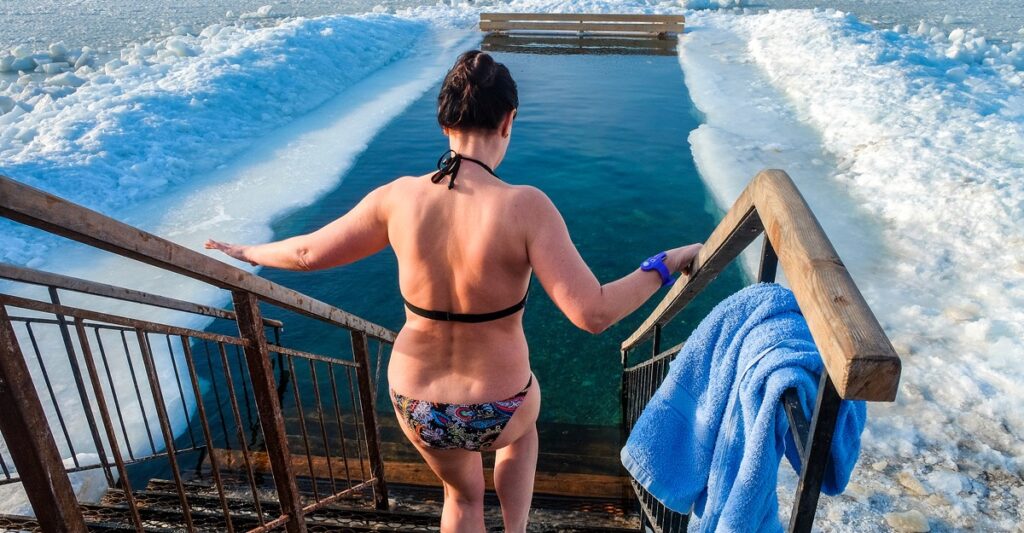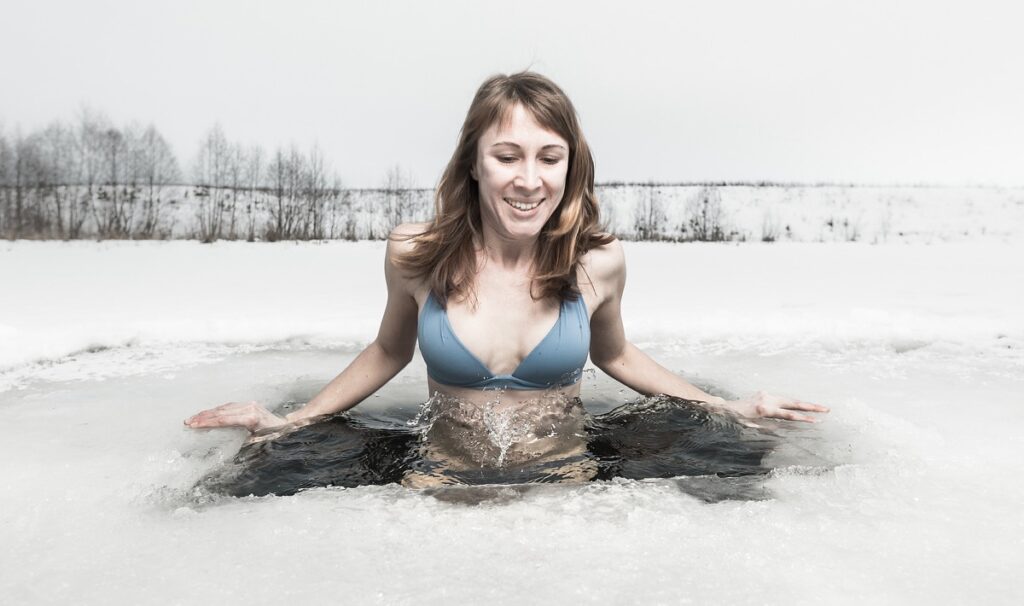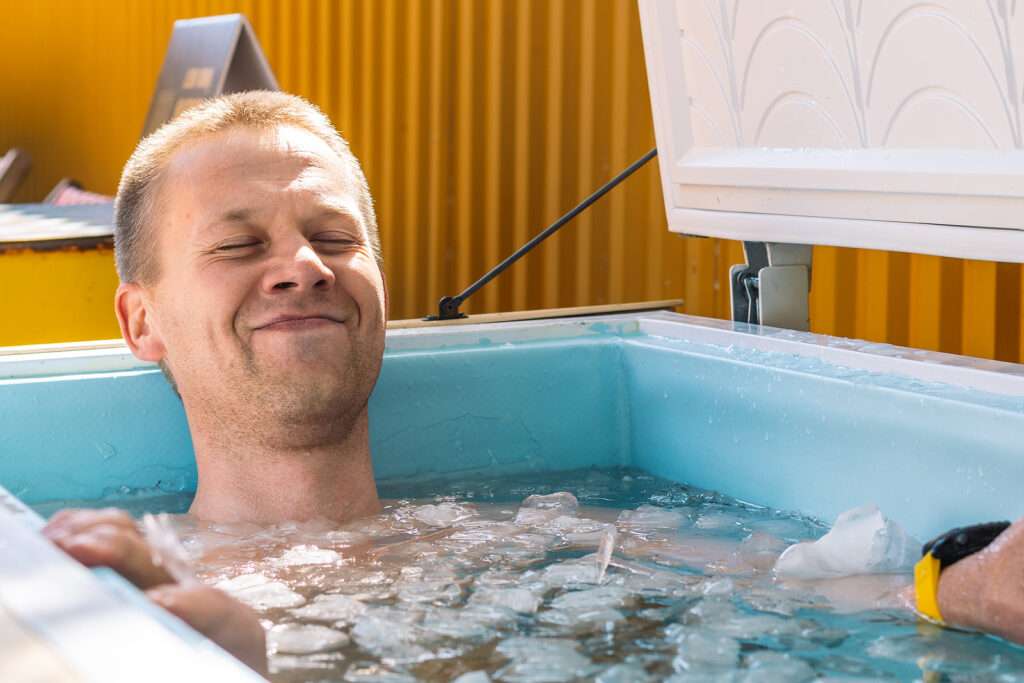Cold plunging, or cold-water immersion therapy, is an ancient practice used by various cultures, from the Greeks and Romans to the modern Nordic traditions. It involves submerging the body in cold water, often at temperatures between 50°F (10°C) and 59°F (15°C), and is widely celebrated today for its powerful physical and mental health benefits. Recent scientific studies and wellness experts advocate for cold plunging due to its ability to enhance immunity, reduce inflammation, improve circulation, boost mental clarity, and support stress management. Below, we explore these health benefits in detail.
Boosts Immune System
One of the most significant advantages of cold plunging is its ability to boost the immune system. When the body is exposed to cold water, it activates the sympathetic nervous system, which releases norepinephrine, a hormone and neurotransmitter that plays a crucial role in immune health. This leads to an increase in the production of white blood cells, which are essential for fighting off infections and illnesses. A study published in the Journal of Applied Physiology revealed that individuals who engaged in regular cold-water immersion experienced a stronger immune response than those who did not. Cold exposure also triggers the release of antioxidants, which help protect the body from oxidative stress, further enhancing the immune system’s defenses. Over time, cold plunging can strengthen your body’s resilience to everyday illnesses like colds and flu, making it a natural immune booster.
Reduces Inflammation and Supports Muscle Recovery
Cold plunging is also widely recognized for its ability to reduce inflammation and support muscle recovery. After strenuous physical activity, muscles can become inflamed due to microtears and lactic acid buildup. Cold-water immersion constricts blood vessels and reduces blood flow to the affected areas, which helps minimize swelling and inflammation. This process accelerates recovery and reduces muscle soreness, making it a popular practice among athletes. In fact, research published in the International Journal of Sports Medicine found that athletes who used cold-water immersion after training reported significantly less muscle soreness compared to those who did not use cold therapy. Cold plunging also helps flush out toxins and metabolic waste from the muscles, allowing for faster recovery. Additionally, for individuals with chronic inflammation, such as arthritis, regular cold plunging can reduce pain and improve mobility by lowering inflammatory markers in the body.
Improves Circulation
Cold plunging has a profound impact on circulation, which is vital for cardiovascular health. When the body is immersed in cold water, blood vessels constrict, and the heart works harder to pump blood to maintain core body temperature. After exiting the cold water, blood vessels dilate, allowing for a surge of blood flow throughout the body. This process improves overall circulation, strengthens blood vessel walls, and enhances the delivery of oxygen and nutrients to muscles and organs. Improved circulation is beneficial for heart health, as it reduces strain on the cardiovascular system and lowers the risk of conditions like hypertension and heart disease. A study in Cryotherapy and Vascular Health demonstrated that cold-water immersion significantly improved blood flow and cardiovascular function, highlighting the long-term benefits of this practice.
Enhances Mental Clarity and Focus
The mental clarity and heightened focus achieved through cold plunging are among the most immediate and noticeable benefits. The cold water stimulates the body’s release of adrenaline and endorphins, which elevate mood, increase alertness, and improve cognitive function. Cold exposure has also been shown to boost the production of norepinephrine, a neurotransmitter that helps improve focus and attention. Studies published in Psychiatry Research indicate that cold therapy can enhance mental performance and reduce brain fog, making it an effective tool for individuals seeking to improve productivity and mental sharpness. Additionally, the mental challenge of enduring cold water builds psychological resilience, as it requires overcoming discomfort and teaches the mind to adapt to stress. Many who practice cold plunging regularly report improved problem-solving skills and a greater sense of well-being.
Supports Stress Management
Cold plunging is an excellent tool for managing stress. Although cold exposure activates the body’s stress response by triggering the release of cortisol, over time, it helps regulate cortisol levels, promoting a more balanced response to daily stressors. This is similar to the effect of exercise on stress: a short-term stress response that builds long-term resilience. Cold plunging also increases the release of endorphins and other feel-good hormones, which help reduce feelings of anxiety and depression. According to a study published in Medical Hypotheses, regular cold exposure can lead to an overall reduction in anxiety symptoms and a decrease in the perception of stress. Furthermore, the physical act of immersing oneself in cold water can serve as a powerful mindfulness practice, bringing attention to the present moment and allowing for a mental reset.
Promotes Better Sleep
For those struggling with sleep disturbances, cold plunging may offer a natural remedy. Cold-water immersion helps cool the body’s core temperature, which is essential for initiating and maintaining deep sleep. The drop in body temperature signals the brain to prepare for rest, leading to more efficient and restorative sleep cycles. Cold plunging can also regulate melatonin production, the hormone responsible for sleep-wake cycles. A study published in Sleep Medicine Reviews found that participants who engaged in cold exposure had improved sleep quality and reported feeling more refreshed in the morning. The stress-relieving and circulation-boosting effects of cold plunging also contribute to better sleep, as they help the body relax and recover more effectively during rest.
Increases Metabolism
Cold plunging has a positive effect on metabolism by stimulating the production of brown fat, a type of fat tissue that burns calories to generate heat. Unlike white fat, which stores energy, brown fat is metabolically active and helps regulate body temperature. When the body is exposed to cold water, brown fat is activated to keep the body warm, thereby increasing calorie expenditure. This process not only helps with weight management but also supports overall metabolic health. Studies published in Nature have shown that regular exposure to cold temperatures can increase the body’s metabolic rate and improve glucose metabolism, making cold plunging a useful tool for those looking to boost their metabolism naturally.
Potential Mental Health Benefits
Cold plunging offers potential mental health benefits, particularly for those struggling with depression or anxiety. The release of endorphins and norepinephrine during cold exposure can act as a natural antidepressant, elevating mood and reducing symptoms of depression. In a study published in Medical Hypotheses, researchers found that cold therapy may trigger the brain’s production of neurotransmitters that enhance mood and alleviate anxiety. Moreover, the sense of accomplishment and mental resilience built through regular cold plunging can contribute to improved self-esteem and emotional well-being. While cold plunging should not be seen as a standalone treatment for mental health conditions, it can be an effective complementary therapy for enhancing mood and reducing stress.


